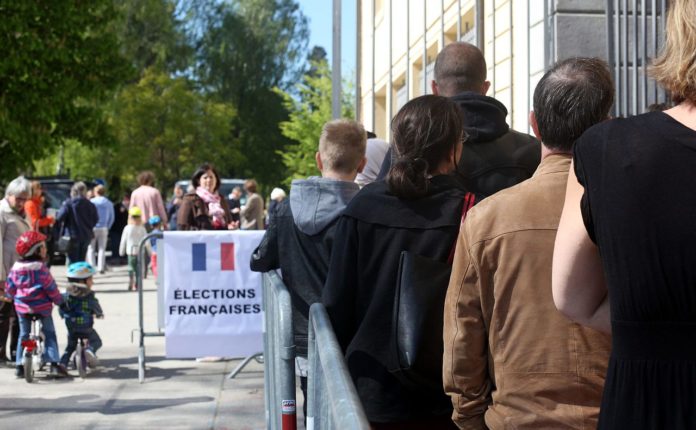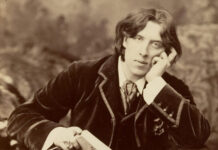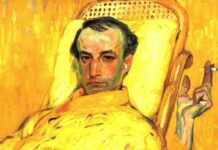
by Olivier Roy
Two days before the first round of France’s presidential elections, a terrorist attack on the Champs-Elysées, claimed by the Islamic State, sent a shock wave through the media: such an attack would surely play into the hands of the “anti-Islam” candidates—namely, the conservative François Fillon and the populist Marine Le Pen. In fact, nothing of the sort happened. Instead, the victor was centrist Emmanuel Macron, who said that France should learn to live with terrorism. The fear of Islam did not work. But religion did play a role, though not in the way that many would have predicted.
Since the recognition of France’s secular Republic by the Catholic Church in 1890 (Cardinal Lavigerie, on behalf of Pope Leo XIII, made a toast “A la République Française!” after an official banquet in Algiers),therehas never been an avowedly Catholic political party in France. The Church rejected the idea, instead opting to promote its values by “secularizing” them and disseminating them through non-religious political actors. For instance, to same-sex marriage was couched in the 2012 by Cardinal Barbarin (bishop of Lyon) as a refusal to change the “anthropological paradigm” on which society is based; he referred to the natural law and not to the will of God.
But the effort to reach out to secular circles and even other religious groups, including Jews, Protestants, and Muslims, failed in this case. Even the moderate right wound up endorsing same sex-marriage. As a consequence, militant Catholics took to the streets under their own flag (and cross). The movement, called la Manif pour tous (“the Demo for all”), which took shape in 2013became autonomous from the clerical hierarchy, by entering politics. By 2016, it had developed into its own political branch, called Sens Commun (common sense), which brought together some militants of Les Républicains, the “Gaullist” center-right party, of Chirac and Sarkozy, in order to push the agenda of the Manif pour Tous inside the party. It achieved a big victory with Fillon’s primary victory over Alain Juppé, the favorite. Although Fillon did not explicitly promise to rescind the law on same-sex marriage, he pledged to rewrite it and prevent full adoption by gay couples. Fillon was the only credible candidate for the presidency since the 1958 constitution to present himself as a practicing Catholic, eager to promote Christian identity and values (conversely: De Gaulle, also a devout Catholic, was a strong defender of the separation of Church and State).
This sudden breakthrough of militant Catholicism took place at a time when the traditional right, in France and throughout Western Europe, had more or less finally but reluctantly endorsed liberal values like feminism, sexual freedom, abortion, gay’s rights, even animal rights. Moreover, even the populist extreme right has also endorsed liberal values where family and sexuality are concerned. Neither the Netherlands’s Geert Wilders, Marine Le Pen, or the Austrian Hans Christian Strache are known for attending church, or advocating Christian sexual and family norms, or Christian teachings on love and hospitality. Their definition of Christian identity is purely ethnic and folkloric, not rooted in the teachings of the Church.
French society is strongly secular—a fact that Le Pen wove into the identity of her National Front (FN) party some time ago. Although the FN is steeped in its anti-immigrant, anti-Muslim fundamentals, from the start of the campaign she has endorsed laïcité—“political secularism,” the official term for the separation of church and state—over Christianity, as the template for French identity. Of course, her version of laïcité is directed against Islam, including banning the veil and halal food from the public space. Le Pen has also extended her particular version of laïcité to exemplifiers of all other religions in the public space, including yarmulke and kosher food.
Nevertheless, this approach helped Le Pen finish second. But to defeat the centrist Macron in the run off, she will have to attract the Catholic constituency of Fillon and the anti-globalization, anti-capitalist, secularist electorate of Jean-Luc Mélenchon, a neo-communist and a “third-worldist,” who has supported Hugo Chavez, Fidel Castro, and the Palestinian people; like Le Pen, he has also been accused of anti-semitism. The former might be attracted by her stance against Islam, and the latter by her anti-European, anti-establishment position.
Mélenchon, a staunch opponent of religious signs in the public sphere, offered perhaps the first round’s biggest surprise: he was the most-popular candidate among Muslim voters, of which there are between 2 and 4 millions, depending if we refer to believers or people from Muslim origin. Some attribute this to his support for the Palestinians and his open, controversial backing of Syrian leader Bashar al-Assad and Russia’s Vladimir Putin. But Palestine did not come up during the campaign. In addition, Mélenchon backs Assad because of his war against Salafist rebels; it’s difficult to see how this would appeal to pro-Salafist French Muslims living on the margins of French society—youth of destitute neighborhoods, the born-again of all kind, and converts. Traditionally, Salafists avoid political participation. In fact Mélenchon never addressed the concerns of faithful Muslims.
The problem in understanding Muslim support for Mélenchon is that most people tend to think that Muslims vote as a single, undifferentiated faith community. For years, the debate over Islam in France has been oversimplified, reduced to an idea known commonly as communautarisation:by returning to a conservative and normative practice of Islam, the Muslim community is enforcing its own forms of social control in “the lost territories of the republic”—namely, the destitute neighborhoods. That move would lead to some sort of separation from mainstream society. But whether this has actually occurred is far from clear.
Muslim support of Mélenchon likely had far more to do with class and social exclusion.
There are, of course, both well-off and less-well-off French Muslims—those stuck in low-wage jobs in the destitute neighborhoods their contract-labor forefathers settled in in the 1960s and 70s, and those who have managed to move into the middle-class. France does not collect voting data by ethnic or religious group, so we cannot say for certain how these people voted; many of these middle-class Muslims likely voted for Macron or the socialist Benoit Hamon in the first round, and are likely to vote for Macron in the second. That’s because they represent middle-class aspirations.
We know the voting patterns of less-well-off Muslims, by contrast, because they are concentrated in certain electoral precincts. Mélenchon came first in the department of Seine Saint Denis, which has the highest-percentage migrant population in France, with 37 percent; in Dreux, another city with a high percentage of migrants, he also captured 37 percent, and a peak of 57 percent in the electoral precinct with the highest percentage of Muslims. This general pattern was confirmed by an IFOP poll after the second round, which indicated that 37 percent of the French Muslims voted for Mélenchon, far exceeding the other candidates.
The first round of the presidential elections showed no political expression or symptoms of such a religious separatism—they voted for Mélenchon, a neo-Marxist. On the contrary, despite the ban on voting declared by many Salafists, and despite a traditional disaffection of the youth towards elections, there has been an increase in participation versus the last elections. Mélenchon, then, likely won the Muslim vote on social issues: exclusion, joblessness, and precariousness attributed to capitalism, the free market, globalization and Europe. Muslims—poorer ones, at least—voted because of their social situation, not their religious convictions, choosing a candidate that based his campaign on social issues, while supporting laïcité and opposing the veil.
Ahead of the second round, it’s interesting that while the Catholic hardliners made a more or less explicit call to vote for the FN, Le Pen is openly trying to court Mélenchon’s electorate without making any reference to the important proportion of Muslims in his electorate. While Mélenchon made it clear that he will vote for Macron, he refused to join the “Republican Front” against extreme right and “fascism” ; and let his supporters decide. Will some poor Muslims vote for Le Pen because they support the FN’s populist agenda? A bit difficult because the FN is still racist. Will they vote for Macron to fight racism? Not necessarily because Macron embodies, according to both Melenchon and Marine Le Pen, the global world of finance. The most probable option is that they will abstain, as many of them told me in Dreux.
Olivier Roy is a political scientist, professor at the European University Institute in Florence, Italy. His most recent book is Holy Ignorance: When Religion and Culture Part Ways (Columbia University Press, 2010).



